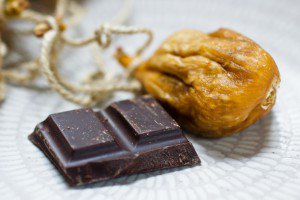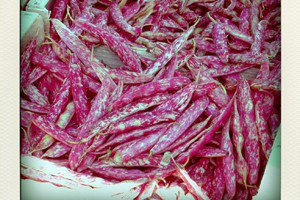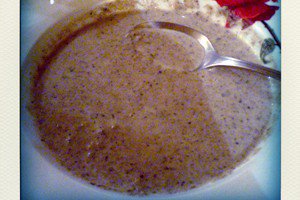
This is part of a series on French idiomatic expressions that relate to food. Read the introductory Edible Idiom post, and browse the list of French idioms featured so far.
This week’s expression is “Mi-figue mi-raisin.”
Literally translated as “half fig half grape,” it is used as an adjective to mean that a thing, a statement, or a person is ambiguous, or mixed: half good and half bad, half pleasant and half unpleasant, half happy and half sad, half willing and half reluctant, half serious and half joking*… The exact nature of the ambiguity is inferred from the context.
Example 1: “Son livre a reçu des critiques mi-figue mi-raisin.” “His book received lukewarm reviews.”
Example 2: “Elle a déballé son cadeau et nous a remerciés d’un air mi-figue mi-raisin.” “She unwrapped her gift and thanked us with a mixed expression on her face.”
Example 3: “Quand je lui ai demandé s’il comptait démissionner, il m’a fait une réponse mi-figue mi-raisin.” “When I asked him if he planned to quit, he gave me an ambiguous reply.”
Listen to the idiom and examples read aloud:
(If no player appears, here’s a link to the audio file.)
This idiom first appeared in the 15th century, but the reasoning behind it is unclear. Dried figs and raisins (i.e. dried grapes) were both eaten during Lent, and the latter were more prized than the former, which could explain the dichotomy implied between the two.
Other sources indicate that it could come from the fact that Greek merchants, who sold currants (in French, raisins de Corinthe, or grapes from Corinth) to Venetian clients, would occasionally try to cheat them by hiding figs, which were cheaper and heavier, at the bottom of the bags. The author of Expressio, however, dismisses this explanation as a story made up long after the fact.
* See also: Ne pas savoir si c’est du lard ou du cochon.













